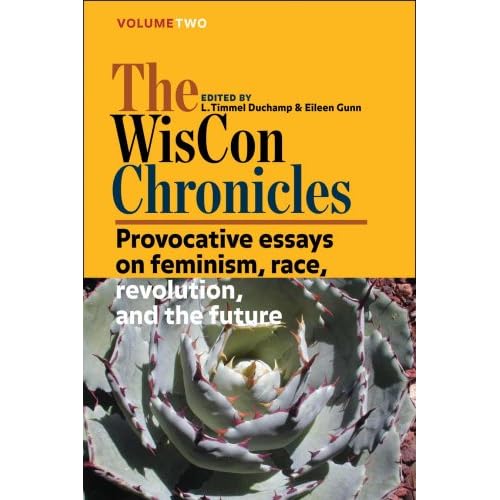Using Sci-Fi to Change the World
By Annalee Newitz
AlterNet

Every year in late May, several thousand people descend on Madison, Wis., to create an alternate universe. Some want to build a galaxy-size civilization packed with humans and aliens who build massive halo worlds orbiting stars. Others are obsessed with what they'll do when what remains of humanity is left to survive in the barren landscape left after Earth has been destroyed by nukes, pollution, epidemics, nanotech wipeouts, or some combination of all four. Still others live parts of their lives as if there were a special world for wizards hidden in the folds of our own reality.
They come to Madison for WisCon, a science-fiction convention unlike most I've ever attended. Sure, the participants are all interested in the same alien worlds as the thronging crowds that go to the popular Atlanta event Dragon*Con or the media circus known as Comic-Con. But they rarely carry light sabers or argue about continuity errors in Babylon 5. Instead, they carry armloads of books and want to talk politics.
WisCon is the United States' only feminist sci-fi convention, but since it was founded more than two decades ago, the event has grown to be much more than that. Feminism is still a strong component of the con, and many panels are devoted to the work of women writers or issues like sexism in comic books. But the con is also devoted to progressive politics, antiracism, and the ways speculative literature can change the future. This year there was a terrific panel about the fake multiculturalism of Star Trek and Heroes, as well as a discussion about geopolitical themes in experimental writer Timmel Duchamp's five-novel, near-future Marq'ssan series.
While most science fiction cons feature things like sneak-preview footage of the next special effects blockbuster or appearances by the cast of Joss "Buffy the Vampire Slayer" Whedon's new series Dollhouse, WisCon's highlights run toward the bookish. We all crammed inside one of the hotel meeting rooms to be part of a tea party thrown by the critically-acclaimed indie SF Web zine Strange Horizons, then later we listened to several lightning readings at a stately beer bash thrown by old school SF book publisher Tor.
To Read the Rest of the Article
No comments:
Post a Comment